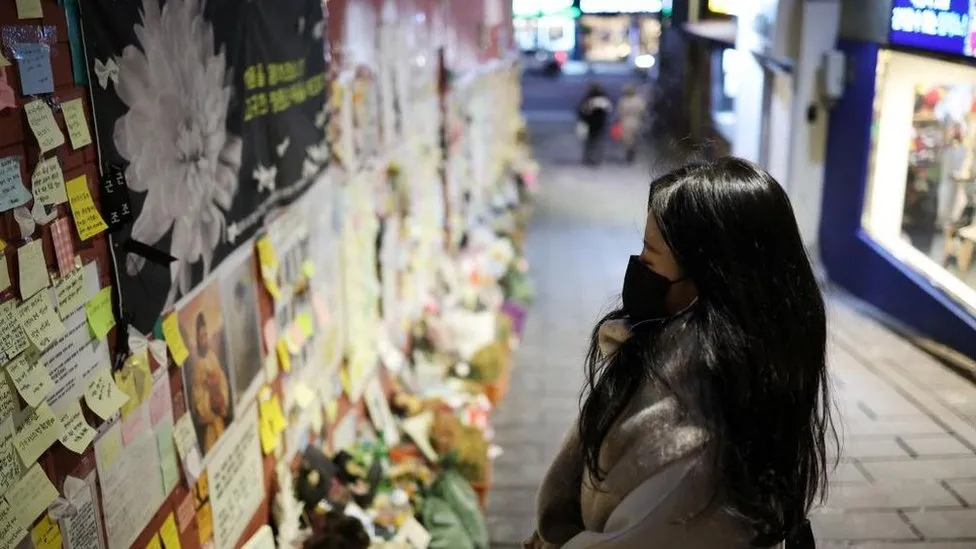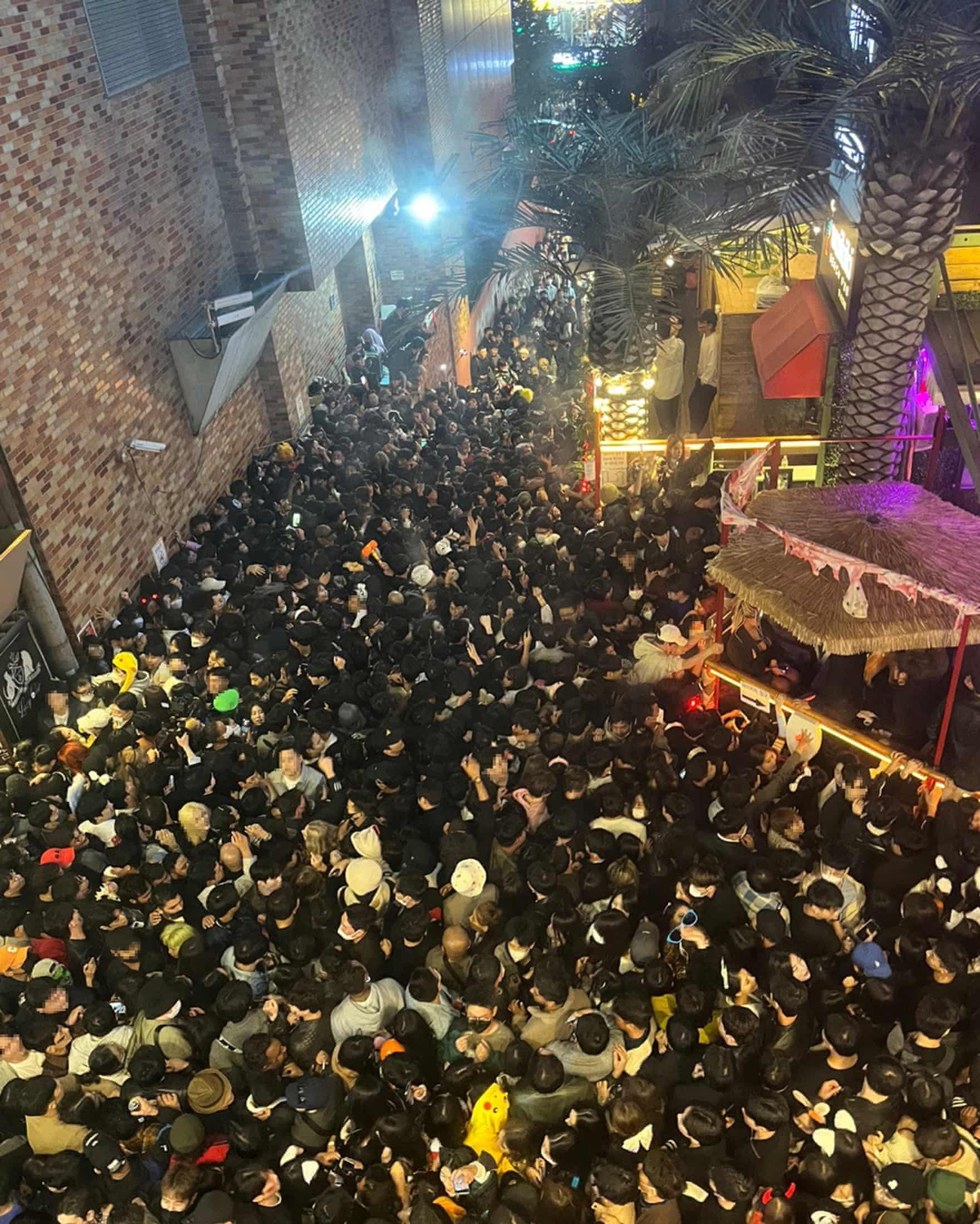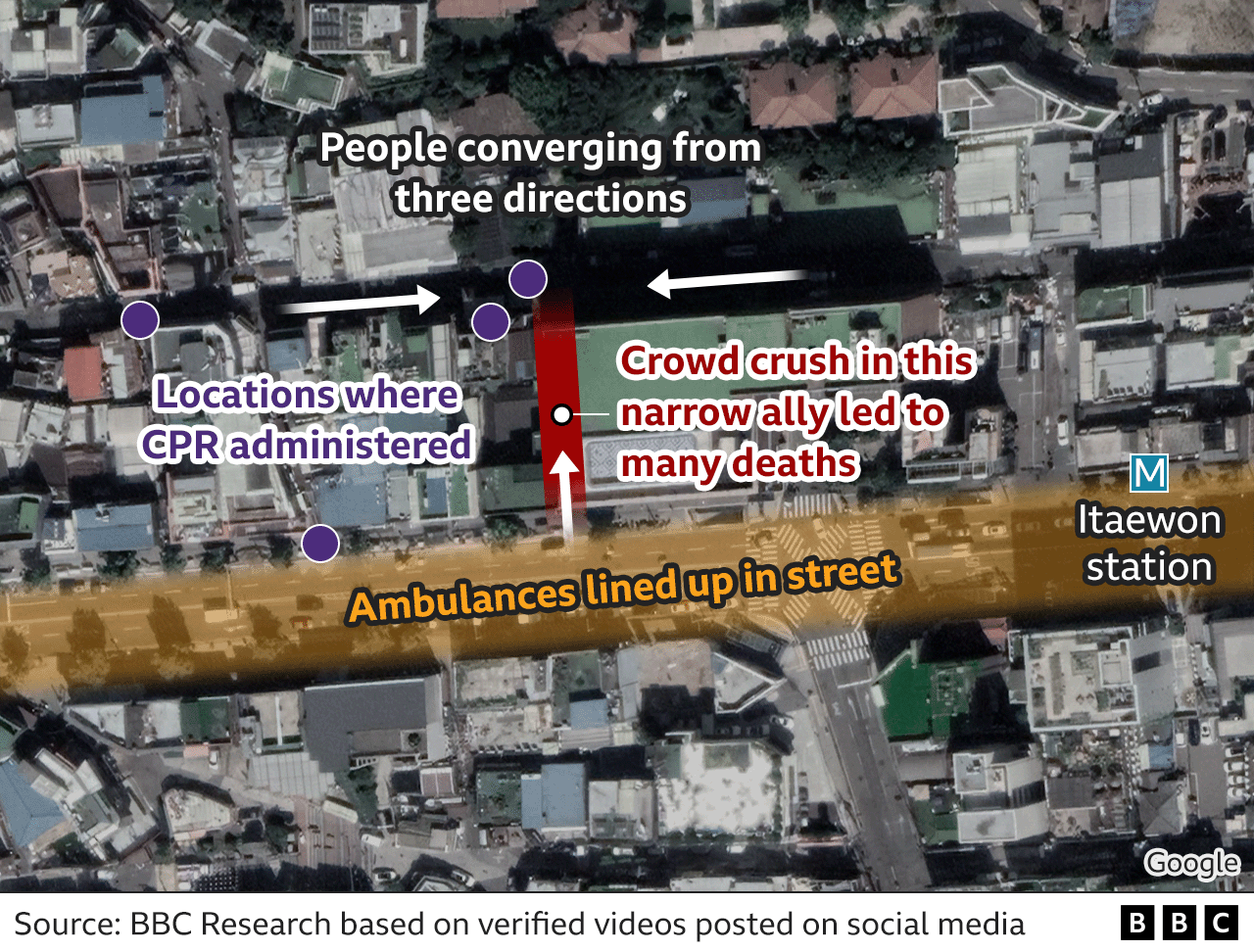
After three years of restricted public events, due to the novel coronavirus pandemic (COVID-19), Seoul experienced one of the biggest crowds of people on Halloween 2023 (Harrison and Earl). People ventured to Itaewon, a foreigner district within Seoul, and engaged in nightlife. However, the fun came to an end as dozens of calls to 911 sprouted due to immense crowds in a packed alleyway. Some reports noted that almost 100,000 people were packed into the narrow alleyway (Marsh and Ng). Of the eleven calls dialed within a four-hour timeframe, many individuals commented on the “utter chaos”, “out of control” situation, and feeling of being “crushed to death” (Choe). Only at 11 PM–almost five hours since the initial call requesting crowd control–did the police arrive on the scene. Then, scenes of chaos–people unconscious on the ground–occurred. Due to the tragedy, over 150 people died due to asphyxiation or other breathing-related issues.

In the aftermath of the crowd crush, the South Korean police department–and politicians–utilized various victim-centric rhetoric. Press releases, immediately after the crush was made public, theorized that the crush was caused by people rushing to see a celebrity in the crowd. However, witness statements directly refute the claims (Butler). In fact, survivors of the event told international news media that, despite the nearest police station being less than 500 feet away in conjugation to the calls, there had been a significant lack of police presence (Choe). According to cell phone footage captured, the impact of the crowd crushing was in full force by the time officials arrived on the scene (Choe). These actions (i.e., calling the police multiple times, filming the progression of the crowd, and reporting experiences to international audiences) have allowed neutral actors to have a clearer picture of what occurred that night. Below is a picture reconstructed by international media to describe the context in which the crowd crush was able to form.

Cell phone usage in South Korea has only benefitted victims and survivors to tell their stories. Since the democratization period, South Korea has had multiple experiences of shaming and blaming victims rather than taking official responsibility. Specifically, the Itaewon Crowd Crush Tragedy exemplifies how important the use of mobile phones can be to keeping the government transparent and accountable under criticism.
Works Cited:
Butler, Toby. “Seoul crowd crush: history suggests authorities may try to blame the victims.” The Conversation, 15 November 2022, https://theconversation.com/seoul-crowd-crush-history-suggests-authorities-may-try-to-blame-the-victims-194466.
Choe, Sang-Hun. “Pleas for Help Went Unheeded for Hours in Deadly South Korea Crush.” The New York Times, 1 November 2022, https://www.nytimes.com/2022/11/01/world/asia/south-korea-crowd-crush.html.
Harrison, Virginia, and Carly Earl. “A visual guide to how the Seoul Halloween crowd crush unfolded.” The Guardian, 31 October 2022, https://www.theguardian.com/world/2022/oct/31/how-did-the-seoul-itaewon-halloween-crowd-crush-happen-unfolded-a-visual-guide.
Marsh, Nick, and Kelly Ng. “Itaewon crowd crush: Senior officials spared blame in report.” BBC News, 13 January 2023, https://www.bbc.com/news/world-asia-64258669.
Hello Carita,
It’s very interesting to hear just how much the South Korean government attempted to shift the narrative on the Halloween crowd crush to something that only involved crazy celebrity fans or some sort of mass hysteria. Manipulating public perceptions on an issue is something we typically attribute to autocratic regimes, such as China or Russia. It’s a much more uncomfortable phenomenon to address once it comes to dealing with how democracies can often work to do the same things. That being said, it’s good to see that the truth about the event has been spread through the use of mobile devices, and that there remains a pathway to transparency on issues like these in the country.
Hi Carita,
I found this blog post to be very interesting and well done. I think that cell phones are a great tool nowadays that allow for the truth about events to come out to the public. It exposes the government and injustices that happen all over the world. Like wio5010 said, we would expect these narrative shifts to happen in countries like China and Russia, not necessarily a country like South Korea. Cell phones make it harder for the government to get away with injustices, which I think is really great.